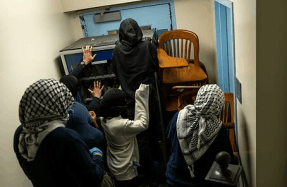Virtual reality gives a boost to the 'lazy eye'
To treat amblyopia, or lazy eye, doctors typically prescribe a patch to cover the stronger eye and make the brain learn to work with the weaker one. Virtual reality offers a new approach.
by Anna Marie Yanny
Dec 26, 2023
3 minutes

Amblyopia, or lazy eye, is the most common cause of vision loss in children. And the condition, which compromises depth perception, can last into adulthood.
But until recently, treatments for amblyopia hadn't changed much.
The standard approach relies on an eye patch over the stronger eye to force the brain to rely on the weaker, or lazy, eye. It works most of the time, but isn't perfect.
Now, several research teams are taking a new tack that aims to get the brain to
You’re reading a preview, subscribe to read more.
Start your free 30 days





